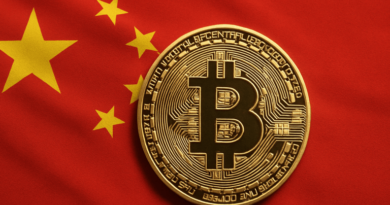China Quietly Liquidates Seized Crypto Amid Ban, Fueling $1.4B Public Revenue Surge

Key Takeaways:
- Chinese local governments are offloading seized Bitcoin worth over $1.4 billion through private firms.
- Despite the national ban on crypto trading, authorities lack unified guidelines on handling confiscated digital assets.
- Calls grow for the central bank to manage seized crypto or create a sovereign crypto reserve.
Notwithstanding a national trade ban, Chinese local governments are quietly profiting from confiscated cryptocurrency, especially Bitcoin. Driven by economic pressures and legal uncertainty, these initiatives are generating controversy regarding China’s long-term crypto strategy, transparency, and regulation.
Read More: Is China Quietly Building a Strategic Bitcoin Reserve to Challenge the US?
Local Governments Monetize Seized Bitcoin Offshore
Chinese local authorities have been tapping into a hidden crypto cache to shore up public finances. Various municipal governments have hired private businesses to offer seized Bitcoin and other cryptocurrencies on offshore marketplaces.
Chinese municipal governments allegedly had about 15,000 BTC at the end of 2023, valued roughly $1.4 billion. Particularly in light of a lagging economy and falling tax receipts, these sales have turned into a notable source of cash.
The workaround is not without controversy. Selling digital assets through private intermediaries outside mainland China skirts the country’s strict crypto trading ban. Although these activities create much-needed liquidity, they highlight a regulatory vacuum and raise concerns about abuse and corruption.
Absence of Unified Regulation Causes Worries
Legal Loopholes and Risks of Abuse
China’s blanket ban on crypto trading, imposed in 2021, has not been accompanied by clear policies on what to do with seized digital assets. Since crypto assets can be readily transferred, hidden, or discounted, lawyers worry that lack of transparency could be misused.
Read More: Is China Preparing to Lift Its Cryptocurrency Ban in 2025?
Surge in Crypto Crime Adds Pressure
The issue has taken on greater urgency amid a sharp rise in crypto-related crime. From online scams and money laundering to illegal gambling rings, the digital asset space in China has become a fertile ground for financial crime.
In 2024 alone, the Chinese government reportedly prosecuted over 3,000 individuals involved in crypto-linked money laundering. These seizures have added to the state’s crypto reserves, but the volume of illicitly gained assets has overwhelmed legal frameworks.
China Now Holds Over $16B in Bitcoin Reserves
Though its legislative position suggests otherwise, China is among the biggest Bitcoin owners in the world, with estimates indicating it possesses about 194,000 BTC, valued more than $16 billion.
This puts China only behind the United States in national Bitcoin reserves. While much of this was acquired through criminal case seizures, it has led to a curious contradiction: the country publicly opposes crypto trading but is sitting on one of the world’s largest digital asset troves.
Experts Propose Crypto Reserve or Sovereign Fund
Growing Support for Centralized Management
A number of legal and industry voices are calling for a shift in strategy. Guo Zhihao, a lawyer based in Shenzhen, argues that the People’s Bank of China (PBoC) should assume responsibility for managing seized digital assets. He suggests the central bank could either sell them in approved jurisdictions or establish a national crypto reserve. This would provide legal infrastructure to manage and possibly invest in digital assets without violating mainland policies.
Geopolitical Tensions Add Strategic Value to Crypto
Rising U.S.-China trade tensions are also reshaping the conversation around crypto’s role in national strategy. Some experts say Beijing might follow Washington’s lead in silent but important ways as it seeks to control stablecoins and foster blockchain innovation.
Such a situation would draw attention to the strategic relevance of China’s crypto assets and strengthen the need for centralized, legal systems to control them aggressively.


